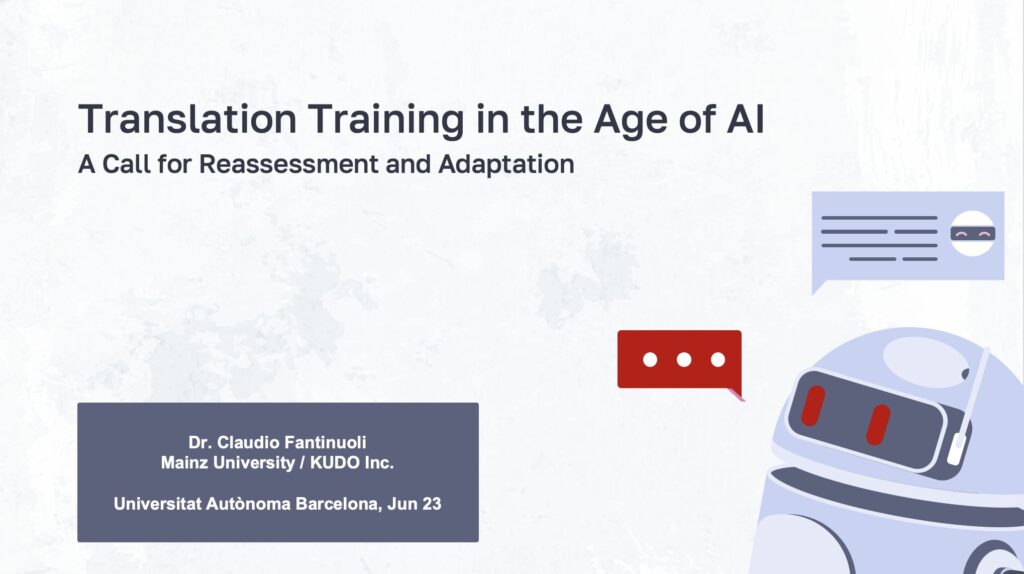I had the privilege of delivering an invited talk at Universitat Autònoma Barcelona recently. I have been asked to address a topic that I feel very connected with, being myself involved in the training of young people at postgraduate level. The central theme revolved around the changing landscape of Higher Education due to the transformative impact of AI on the fields of Translation and Interpreting.
Here are some key points I made:
👉 A significant number of faculties are reassessing their curricula in response to the Technological Turn influencing the Translation and Interpreting sectors.
👉 The prevailing response to this emergent challenge lies in the application of traditional educational approaches. These are primarily centered around narrow specializations and hard(er) skills, intended to enhance immediate employability.
👉 However, there’s an inherent issue with this response. While these specializations and skills may have immediate relevance, there’s a risk that experts silo themselves further while computers master more of the skills once reserved for highly educated humans.
👉 Universities should be encouraged to adopt a longer-term perspective rather than making reactive adjustments based on immediate challenges or contingencies.
👉 Given the inevitability of ongoing change in skills, profiles, etc., it’s important that educational curricula expand their scope. In this context, the role of technology, and particularly AI, should be considered far beyond its instrumental capacity.
👉 Students should be imparted with a deep understanding of technology (not the applications) and decision-making abilities.
Most important skills to flourish are not narrow skills but how to master new skills throughout life. People who think broadly and embrace diverse experiences and perspectives will increasingly thrive. But developing this mindset in young generation is not easy, and require a whole new approach at how we define education, even in a professional context. The hyperspecialisation of our curricula is detrimental for this goal as expert in education are increasingly pointing to.
I am engaged as advisor in several curriculum reform processes at the the moment. It is not an easy task for the people that have to take the final decisions. Is it possible to adapt old curricula to new needs? Very often, my position is that traditional, fully specialized translation programs (like the 3+2-year model we see in Europe) are now outdated. What’s needed today and increasingly in the future, as many experts of education and market are pointing to, are curricula with a broader scope that equip students with a wider range of skills and knowledge.

1 thought on “Narrow specialization is not a fit for the future of education”